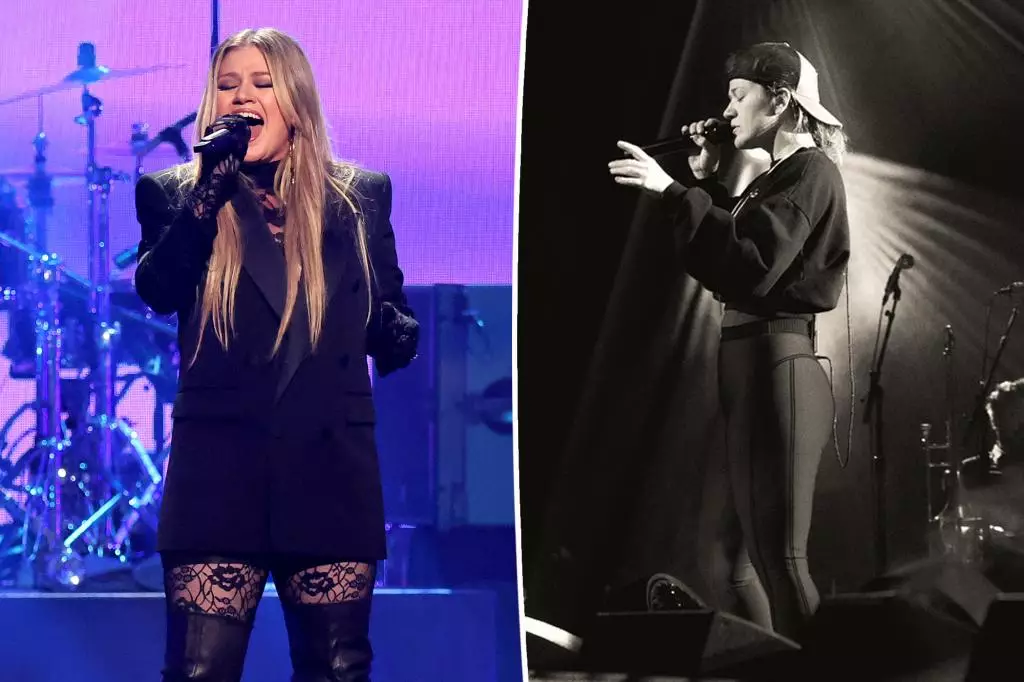In the realm of live entertainment, fans often anticipate perfection—a seamless, electrifying experience that justifies their time, effort, and money. When Kelly Clarkson’s Las Vegas residency was abruptly postponed just 90 minutes before the curtain was set to rise, it exposed a stark contrast between these expectations and the harsh realities artists face behind the scenes. Fans, eager and hopeful, suddenly found themselves stranded, their disappointment amplified by the late notice. Such last-minute cancellations are not merely logistical hiccups; they shake the very trust between an artist and their audience.
While many sympathized with Clarkson’s health concerns, the timing of the cancellation—so close to showtime—fuels a brewing debate. Fans’ frustrations stem from the belief that artists have a duty to be accountable, particularly after investing thousands into travel and accommodations. The notion that performers should offer some form of reimbursement or insurance for last-minute cancellations isn’t just pragmatic—it’s a matter of fairness in an industry that often overlooks the financial burden fans carry. This incident compels us to ponder: should there be stronger safeguards for concertgoers when artists need to postpone or cancel unexpectedly?
The Toll of Perfectionism and Health in the Spotlight
Clarkson’s public explanation for the cancellation underscores a significant issue: the physical toll of rigorous preparation and rehearsals on an artist’s health. She cited vocal exhaustion as the reason for postponing, emphasizing her desire to deliver a performance worthy of her fans’ expectations. It’s a candid admission that even successful, resilient artists are vulnerable to the relentless demand for excellence. Her decision underscores a vital truth—artistry is often a delicate balance between pushing oneself to deliver and safeguarding one’s well-being.
However, the timing of her announcement, mere minutes before the show, underscores a persistent challenge many performers face: the pressure to push through discomfort for fear of disappointing fans or missing an opportunity. It also exposes a gap in how artists manage health crises in a culture that idolizes endurance and perseverance. Is it fair to expect artists to gamble with their health to meet commercial or fan expectations? Or should the industry, promoters, and fans collectively recalibrate their understanding of ‘perfection’—recognizing that artistic integrity sometimes requires pausing for health?
Industry Expectations Versus Personal Well-being
Clarkson’s situation is emblematic of a broader conflict in the entertainment industry: the tension between commercial schedules and personal health. The scheduling of 18 concerts across several months at Caesars Palace was undoubtedly a massive undertaking, demanding extensive rehearsals and vocal preparation. Yet, the expectation that such a demanding schedule can be navigated flawlessly often ignores the unpredictability of human health.
Furthermore, Clarkson’s candid acknowledgment of her condition reveals a growing shift toward transparency and self-care among artists. Unlike past eras where silence about health issues was the norm, today’s performers seem to advocate for a more humane approach—one that prioritizes long-term well-being over immediate career milestones. This marks a positive transformation, but it also opens up questions about the support systems in place. Are artists equipped with adequate resources—medical, mental, and emotional—to handle the stress and physical strain? Or are they left to navigate these challenges alone, risking burnout and damaging their careers?
The Double-Edged Sword of Fame and Public Scrutiny
The public’s response to Clarkson’s cancellation reveals another layer—how fame amplifies every misstep and transforms personal circumstances into public spectacle. While some fans expressed understanding and support, others voiced their frustrations, calling for accountability and compensation. This duality shows how modern celebrity culture demands constant availability and flawless performance, often at odds with human limitations.
Moreover, Clarkson’s case highlights the immense pressure faced by artists who operate under intense scrutiny, often balancing multiple roles—singer, performer, show host, and public figure. Rumors about her personal struggles and possible impending departure from her talk show only compound the narrative, adding fuel to the speculation fire. Her acknowledgment of these challenges serves as a reminder that behind the glitz, artists are human beings subject to the same vulnerabilities as anyone else.
In the end, Clarkson’s experience prompts a reflection on the nature of success in the entertainment industry. Is relentless ambition and continuous productivity truly sustainable, or does it come at the cost of authenticity and health? Perhaps, the industry needs to evolve—embracing a culture that respects artists’ boundaries, recognizes their humanity, and values quality over quantity. Only then can performers truly thrive without sacrificing their well-being or public trust.

